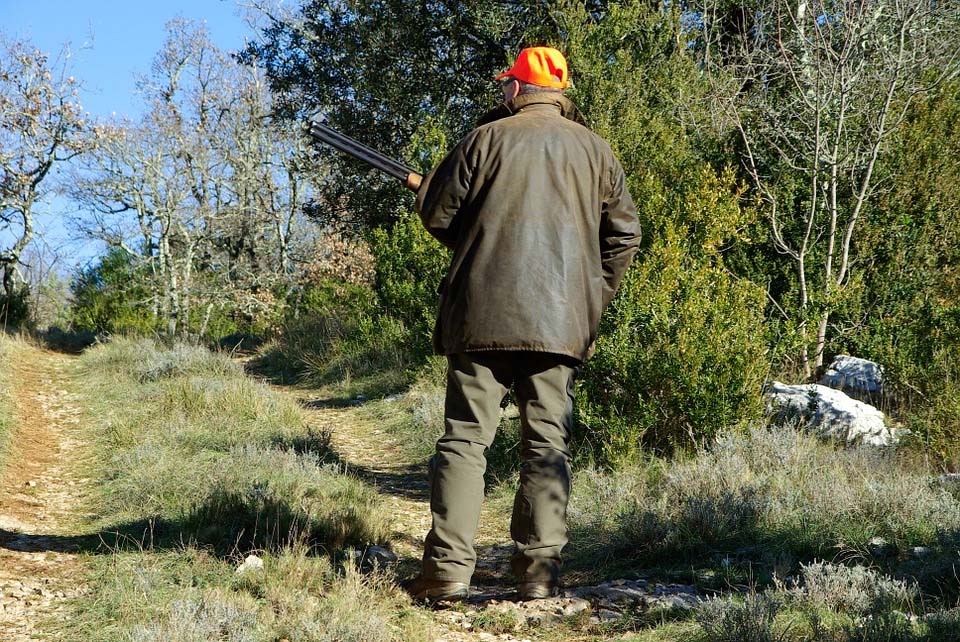The European Union’s plan to ban lead in ammunition throughout the bloc has created conflicting opinions in Cyprus, with environmentalists and recreational hunters taking opposite sides.
European Commission President Ursula von der Leyen had earlier in the year penned a new draft commission regulation which outright bans lead in ammunition and in fishing tackle, with that regulation set to be discussed at the European parliament’s “Reach” committee – its committee for the authorisation and restriction of chemicals.
On Tuesday, firearms dealers’ association chairman Angelos Pitsilides called on the government to ask the EU for Cyprus to be granted an exemption from the new law.
He told local media that the problems faced in continental Europe with regard to the contamination of groundwater by discarded lead is not an issue in Cyprus, as it rains much less in Cyprus compared to in most of Europe.
In addition, he said, Cyprus should ask for a longer transition period to implement the existing EU ban on the use of lead ammunition in wetlands, which became law in the EU, Iceland, Liechtenstein and Norway in 2023.
He said Cyprus should be given a 10-year transition period to implement the regulation – much longer than the three-year transition period foreseen by the EU for wetland hunters.
Should Cyprus not win these carve-outs for itself, Pitsilides said, there could be dire consequences.
He said the problems for weapons in Cyprus would be “insurmountable”, given that for the same weapons to be able to use alternative ammunition, “they would have to undergo checks and be certified at a specialised testing centre, the type of which does not exist in Cyprus”. The closest such centre, he said, is in Italy.
“As such, the cost of sending, testing, and certifying would in most cases reach, if not surpass, the cost of the weapon itself,” he said.
He added that around 70 per cent of weapons in Cyprus, amounting to a value of around €1 million, will be affected by the change.
“Weapon shops in Cyprus will have to delete a notable quantity of their stock or just have enough money to ensure their certification from abroad,” he said.
In addition, he said, Cyprus has in the last decade and a half “developed itself into a shooting sports centre”.
Various international shooting competitions have taken place in Cyprus in recent years, with Pitsilides pointing out the “infrastructure and the cheap Cypriot ammunition” which makes it possible.
“Getting rid of lead only in Europe will, of course, impact that stream of tourists coming to Cypriot shooting ranges, as well as the identity of Cyprus as a shooting sports centre,” he said.
On the other side of the argument, ornithological charity BirdLife International hailed the move, saying the draft commission regulation “includes strong measures to cut lead exposure from hunting and fishing, significantly reducing risks for people, wildlife, and pets”.
“Banning lead in hunting will also protect those who eat game meat, including hunters and their families, as well as pets fed contaminated food,” the animal welfare group added.
BirdLife Europe’s senior nature conservation policy officer Barbara Herrero said the case for banning lead in ammunition is “undeniable”, and stressed that “safe, effective, and affordable alternatives already exist”.
“If EU countries like Denmark have done it, why hasn’t the rest of Europe? There’s no excuse to continue poisoning people, nature, and wildlife. It’s time to get the lead out of shooting and fishing for good. We urge EU representatives to close loopholes and back a full, science-based ban for Europe and its citizens,” she said.
BirdLife Cyprus had earlier made a statement on the matter, saying that 44,000 tonnes of lead ammunition and fishing weights “are released into Europe’s environment” every year.
“This unseen pollution is poisoning our wildlife, endangering human health, contaminating our water and soil, and putting our pets and livestock at risk,” it added.
It went on to say that “at least one million birds die painful deaths when they ingest toxic ammunition or fishing weights” every year, and that these birds include “some of Europe’s most iconic species, like swans and eagles”.
“Millions more birds suffer from the effects of lead poisoning, experiencing pain and distress, affecting their chances of survival,” it added.
It also highlighted the impact of lead on human health, saying that when lead is used in hunting exercises, “fragments of lead scatter in the meat, putting anyone who eats it at risk”.
“Lead exposure is particularly harmful to those who are pregnant and children, impacting brain development and overall health. Right now, one million children across Europe are at risk of preventable lead exposure,” it said.







Click here to change your cookie preferences